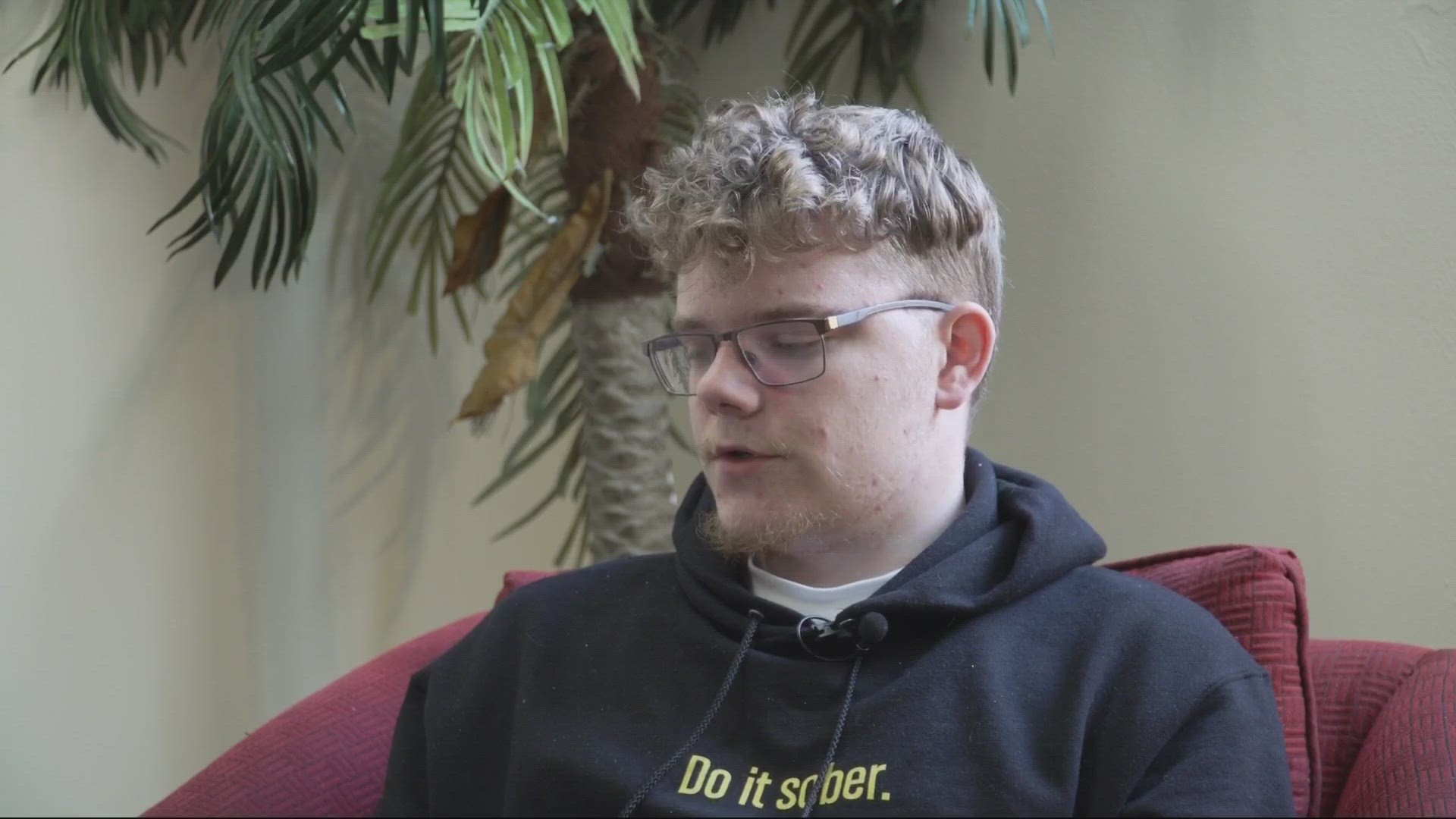PORTLAND, Ore. — Several months ago, KGW reported on an addiction treatment center in Northeast Portland that focuses on helping young adults. There, reporter Blair Best met a 19-year-old who had just entered the program and was addicted to fentanyl pills.
Four months later, Andrew Couch is prepared to graduate from the program.
“I was doing multiple pills a day, definitely, until I ran out of money,” said Couch.
He admitted himself to Cielo Treatment Center after it opened in November.
“It feels good that I don’t have to rely on something,” he said.
Couch is on medication-assisted treatment to help him wean off opioids. He’s starting school in April, and he's started talking to his family again.
“Previously in my addiction I was like just angry, getting high all the time, bad relationships with everybody, didn’t really care about anything other than myself and drugs,” said Couch.
In the past, leaving treatment centers resulted in relapse or overdose for him.
“I’m going to do everything in my power to not let that happen,” he said.
That includes relying on the community he’s formed at Cielo, since most of the staff — like Martin Camacho — are also in recovery.
“The thing is you’re not alone — and this is all done, as we call it, finding your tribe, right? It’s about finding a group of people, your support group, that understands you and that can hold you accountable,” said Martin.
Every week, the clients are drug tested and taught the importance of a healthy routine.
“We try to equip them the best that we can in those four months. We don’t try to treat the drugs and we don’t try to treat the alcoholism, we try to treat the person,” Camacho said.
Yet the current state of the city’s drug crisis is working against them.
“The person’s at risk walking out the door. But we’re trying to focus on our primary purpose and we’re just trying to help people,” said Camacho.
“If you worked half as hard in recovery as you did trying to find the pills you’d be doing really well,” added Couch.
At Cielo Treatment Center they have an open-door policy, which means when someone graduates, they’re free to come back whenever they want. People from the treatment center keep following up with them to keep them on the road to recovery.

